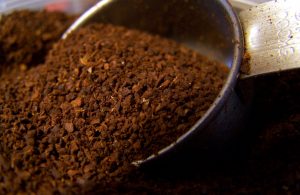 Love your morning cup of Joe? There’s been a lot of research in recent years looking at the potential cancer risk benefits of drinking coffee.
Love your morning cup of Joe? There’s been a lot of research in recent years looking at the potential cancer risk benefits of drinking coffee.
One of the most recent investigations that suggest coffee may offer cancer protection focused on endometrial cancer. Published in December, researchers at the Harvard School of Public Health evaluated the evidence on coffee and endometrial cancer risk. The review looked at a total of 16 population studies with 6,628 cases of endometrial cancer.
The results are promising for coffee drinkers: the authors found a 29 percent reduced risk for developing endometrial cancer when comparing individuals who drank the most coffee compared to those who drank the least. The researchers reported an 8 percent decrease in risk for each cup of coffee consumed daily. You can read more about the study here.
Coffee may protect against endometrial cancer in these ways:
- Chemicals in coffee, such as chlorogenic acid, have antioxidant properties that can prevent oxidative damage to DNA.
- Coffee consumption may reduce levels of estrogen in the bloodstream. Endometrial cancer is associated with elevated levels of estrogen.
- Drinking coffee has been associated with a decreased risk for diabetes. Type 2 diabetes is associated with increased risk for endometrial cancer.
Endometrial cancer is the most common gynecologic cancer in the U.S. and AICR’s expert report found that obesity is a cause of endometrial cancer and that physical activity reduces risk for this cancer.
So, enjoy your coffee, just remember – it’s the coffee that’s beneficial, not the cream and sugar!
Of note: In looking at all the evidence, AICR’s 2007 report judged coffee unlikely to have any effect on the risk of pancreatic or kidney cancer – the two cancers for which there was enough evidence to make a conclusion. Another research group published an analysis of the research on coffee and pancreatic cancer and they found no association.
Read more in one of our past blogs about coffee and pancreatic cancer, prostate cancer and breast cancer.





